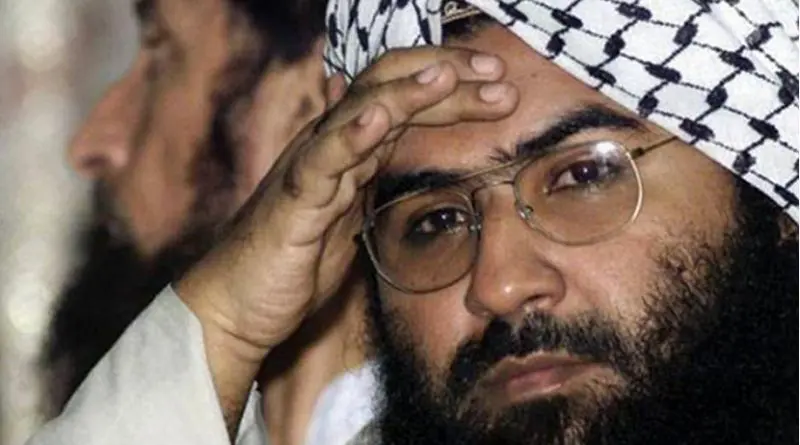Forcing China’s Hand? – Analysis
By Observer Research Foundation
The U.S. initiative to have Masood Azhar blacklisted at the UN Security Council marks a new turn.
By Harsh V. Pant
Late last month the US opened another front in its ongoing multi-pronged tussle with China when it circulated a draft resolution to the powerful 15-nation UN Security Council (UNSC) on March 27 to blacklist Pakistan-based Jaish-e-Mohammed chief Masood Azhar and subject him to a travel ban, an assets freeze and an arms embargo. It did so knowing full well the Chinese position on the issue as China had put a hold on a French proposal to list Azhar under the 1267 al-Qaeda Sanctions Committee of the Council just a few days earlier.
Washington has underlined that it would utilise “all available avenues” to ensure that Azhar is held accountable by the UNSC by suggesting that “while we strongly prefer that UNSC designations take place through the committee process, the United States and its allies and partners, including those on the… Security Council, will utilise all available avenues to ensure that the founder and leader of the UN-designated terrorist organisation JeM is held accountable by the international community.”
China,of course, has reacted strongly to this move by arguing that the U.S. decision to go directly to the UNSC to designate Azhar could scuttle China’s efforts to resolve the issue amicably. As per the Chinese spokesperson, “China has been working hard with relevant sides and is making positive results. The U.S. knows that very well. Under such circumstances, the U.S. still insists on pushing the draft resolution, (which) doesn’t make any sense.”
The US-China angle
Washington will be aware that China would continue to oppose the move but the fact that it is willing to take on China so openly on this issue underscores that it wants to call China out publicly. This was reflected in US Secretary of State Mike Pompeo’s tweet: “The world cannot afford China’s shameful hypocrisy toward Muslims. On one hand, China abuses more than a million Muslims at home, but on the other, it protects violent Islamic terrorist groups from sanctions at the UN.”
France’s proposal to get Azhar listed as a terrorist by the the UN’s 1267 sanctions committee was scuttled by China despite the move having the support of 14 out of 15 members. In its zeal to shield Pakistan, China has used its veto on Azhar’s listing at the 1267 UNSC sanctions committee four times in the past decade. But after the February 14 Pulwama attack that killed 40 Central Reserve Police Force (CRPF) personnel, for which the JeM took responsibility, Chinese intransigence has come under the spotlight. After China’s block last month, France moved quickly to impose sanctions on Azhar, including a freeze on his assets. It is working with its European partners the matter of putting Azhar on a European Union list of terrorists and terror organisations. The international community, apart from China, has rallied behind India after Pulwama and has pushed Pakistan to undertake serious measures to control terrorism emanating from its territory.
This has been shaped by India’s diplomatic outreach over the last few years in which global support has been sought to reverse Pakistan’s support to terrorist organisations. But what has given this an added sense of urgency is India’s decision to up the ante after the Pulwama attacks by taking the fight to the Pakistani territory. This has now put the onus on Pakistan to de-escalate, a reversal of the post-1998 situation where in every India-Pakistan crisis it was New Delhi which was expected to take steps for de-escalation even as every crisis was precipitated by Pakistan. After every crisis, the international community, especially the West, would persuade India to ease tensions, and in most cases India relented. The post-Pulwama South Asian strategic equilibrium has shifted as New Delhi has made it clear that it could not be expected to look the other way from Pakistani provocations.
Regional peace
The latest American move is an unprecedented one, and is not only aimed at forcing the Chinese hand on Masood Azhar but is also a recognition of the new regional context in South Asia where a stronger global attempt to rein in Pakistan is the only viable option of maintaining regional peace. As the U.S. and China prepare the South Asian chessboard, Indian moves have suddenly become the decisive ones and both the powers are calibrating their own moves accordingly.
This article originally appeared in The Hindu.

